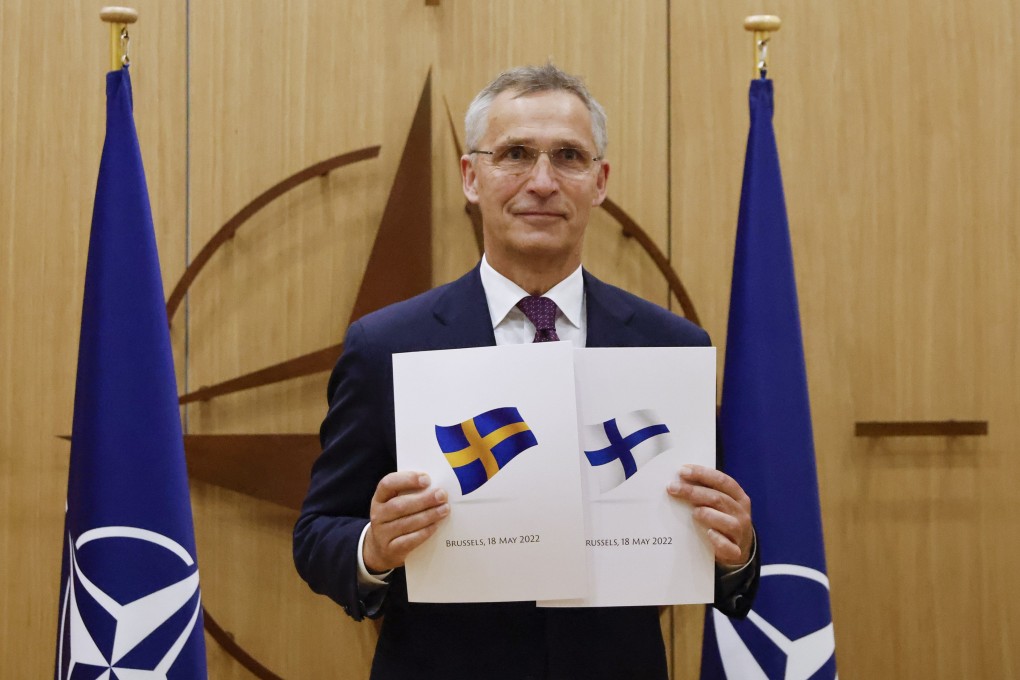Finland and Sweden submit applications to join Nato
- Bid to join Nato was driven by security concerns over Russia’s war in Ukraine
- Turkey has expressed reservations about Finland and Sweden joining alliance

Finland and Sweden formally applied to join the Nato alliance on Wednesday at allied headquarters, a decision spurred by Russia’s invasion of Ukraine, and setting in motion an accession process that is expected to take only a few weeks.
Sweden and Finland were both neutral throughout the Cold War, and their decision to join Nato is one of the most significant changes in Europe’s security architecture for decades, reflecting a sweeping shift in public opinion in the Nordic region since Russia’s February 24 invasion.
“This is a historic moment, which we must seize,” Nato Secretary General Jens Stoltenberg said at a short ceremony in which the Swedish and Finnish ambassadors to the alliance handed over their application letters, each in a white folder embossed with their national flag.
“I warmly welcome requests by Finland and Sweden to join Nato. You are our closest partners, and your membership in Nato will increase our shared security,” Stoltenberg said. The alliance considers that the accession of Finland and Sweden would hugely strengthen it in the Baltic Sea.
Both countries are close partners of Nato, but have attempted to balance security concerns with close neighbour Russia. Finland shares a 1,300km-long border with Russia, while Sweden is traditionally neutral.
Russia has repeatedly warned its Nordic neighbors that their joining the alliance would have negative repercussions.